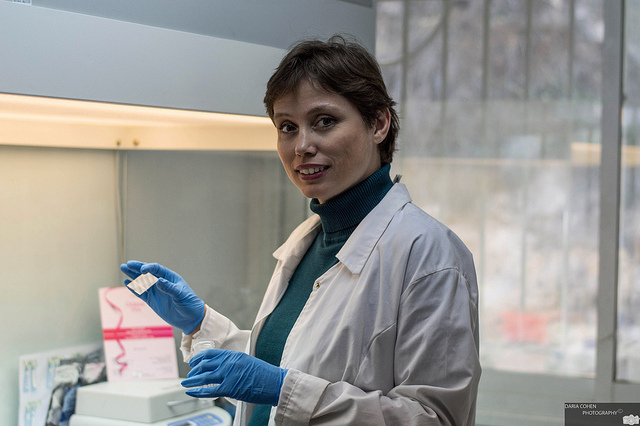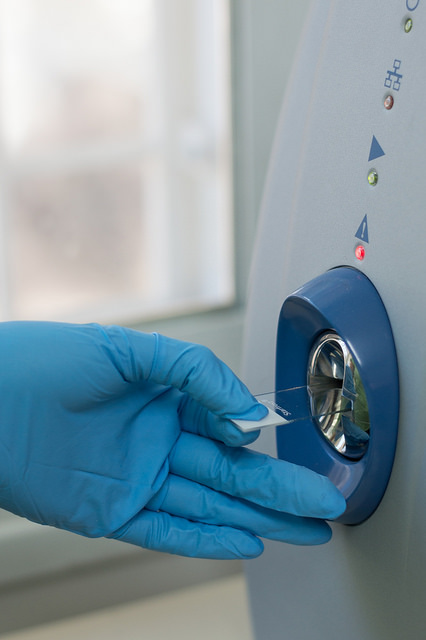RUTHIE BLUM: ISRAELIS DEVELOP THE FIRST BLOOD TEST FOR BREAST CANCER
http://israel21c.org/health/israelis-develop-first-blood-test-for-breast-cancer/
Octava Pink, a groundbreaking achievement in cancer detection, follows eight years of research at EventusDx in Jerusalem.
After eight years of painstaking research, Israeli life-sciences company Eventus Diagnostics (EventusDx) has produced a blood test for the early detection of breast cancer.
The Octava Pink test is now available in Israel and Italy, and is undergoing clinical trials to receive US Food and Drug Administration approval.
This is the first blood test ever that can reveal cancer, not merely markers that might indicate cancer or something else. Its innovation also lies in its examination of antibodies in the blood to pinpoint this specific cancer.
Molecular biologist Galit Yahalom — who heads the research team at the EventusDx offices and lab, located in Moshav Ora outside of Jerusalem – explains the breakthrough to ISRAEL21c.
“For the last decade, we have known that there is a connection between cancer and the immune system,” says Yahalom, a 43-year-old mother of two from Modi’in who has been working on this project since its inception.
“We know that it recognizes cancer as an external enemy that must be destroyed. It is possible that each of us has had instances of cancer we were unaware of, because our immune systems killed it when it was still very small. For whatever reason, the immune system of people with cancer is not functioning properly.”

It was from this angle that Yahalom’s 15-strong team of biologists (and a computer expert) attempted to tackle the problem. After collecting data from hundreds of healthy women and as many diagnosed with breast cancer, Yahalom’s team looked for the proteins of the immune system responsible for detecting both. They also examined immune-system activity in women with ovarian cancer and men and women with intestinal cancer, to see the distinction from those with breast cancer.
Yahalom says that comparing the panels of elements characteristic of the women with breast cancer to those of healthy women created “pictures” of each group.
“Imagine that one is a picture of a flower and the other of a heart,” she says. “Yours might be a flower with four petals instead of five, and another woman’s might be a heart with a bulge, but you both fall into one of the two categories.”
These categories are arrived at through a mathematical algorithm developed by EventusDx, a private company funded by American investors. The precision of the algorithm is high, with only a five percent margin of error.
“And even this small amount might not actually constitute error,” says Yahalom, “but rather the possibility that someone’s immune system detected a cancer that is either no longer there — because antibodies destroyed it — or that has not erupted yet.”
Detecting cancer quickly
Since the release of Octava Pink in Israel in September, Yahalom’s lab has performed 400 such blood tests.

Comments are closed.
